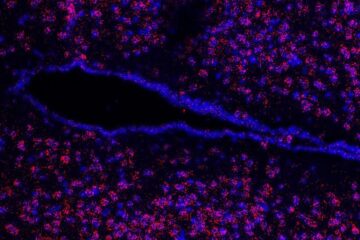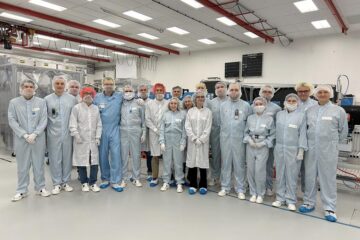Securing the future of Europe’s biological data resources

The consortium ultimately aims to establish a sustainably funded infrastructure for biological information in Europe, to support innovation in life science research, knowledge generation and its translation to medicine, the environment, the bio-industries and society.
Since the 1980s, the storage mechanism for biological information has gone from being an individual’s notebook and published academic papers to open source databases of integrated information exchanged worldwide on a daily basis. This information and the databases that make it available to scientists around the world are an indispensable resource for modern biology. Yet commonly these resources are dependent on insecure or short term funding, meaning that the valuable data they contain and provide access to, are jeopardised when funding ends.
ELIXIR aims to protect the existing and future data held in biological data resources. The project will work to provide a European infrastructure for optimal information storage, access and integration supported by a secure funding mechanism. “Under the Framework Programme for Research, the European Commission provides support to the preparatory phase for the construction of new research infrastructures,” commented Mr Robert-Jan Smits, Director of Directorate B (European Research Area: Research Programmes and Capacity) at DG Research of the European Commission. “This will help catalyse the efforts and resources needed to build and ensure the sustainability of large-scale, word-class infrastructures needed by Europe's research communities.” In this way, the longevity of Europe’s central molecular data resources will be guaranteed.
The development of such a network is a strategic step in maintaining the global position of Europe as a leader in scientific research. “The biological sciences are delivering benefits that contribute to advances in our society,” says EMBL-EBI director and ELIXIR coordinator Janet Thornton. “Developing a securely funded, integrative infrastructure will give Europe one voice in the global community, meaning that we can make connections and realise those benefits more quickly by working together,” she concludes.
More information on ELIXIR and details on future stakeholder meetings can be found at www.elixir-europe.org
Media Contact
All latest news from the category: Life Sciences and Chemistry
Articles and reports from the Life Sciences and chemistry area deal with applied and basic research into modern biology, chemistry and human medicine.
Valuable information can be found on a range of life sciences fields including bacteriology, biochemistry, bionics, bioinformatics, biophysics, biotechnology, genetics, geobotany, human biology, marine biology, microbiology, molecular biology, cellular biology, zoology, bioinorganic chemistry, microchemistry and environmental chemistry.
Newest articles

Cost-effective, high-capacity, and cyclable lithium-ion battery cathodes
Charge-recharge cycling of lithium-superrich iron oxide, a cost-effective and high-capacity cathode for new-generation lithium-ion batteries, can be greatly improved by doping with readily available mineral elements. The energy capacity and…

New regulator of eating behaviour identified
The rapidly escalating prevalence of overweight and obesity poses a significant medical challenge worldwide. In addition to people’s changing lifestyles, genetic factors also play a key role in the development…

Harnessing Machine Learning for Breakthroughs with High-Power Lasers
A team of international scientists from Lawrence Livermore National Laboratory (LLNL), Fraunhofer Institute for Laser Technology ILT, and the Extreme Light Infrastructure (ELI) collaborated on an experiment to optimise high-intensity…





















